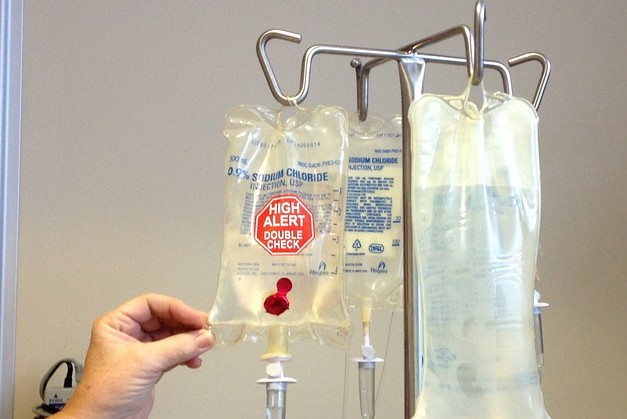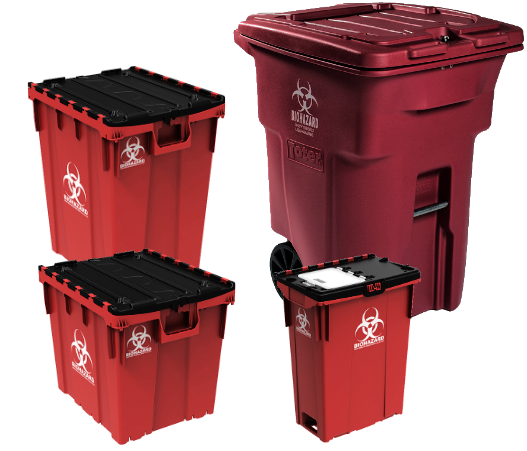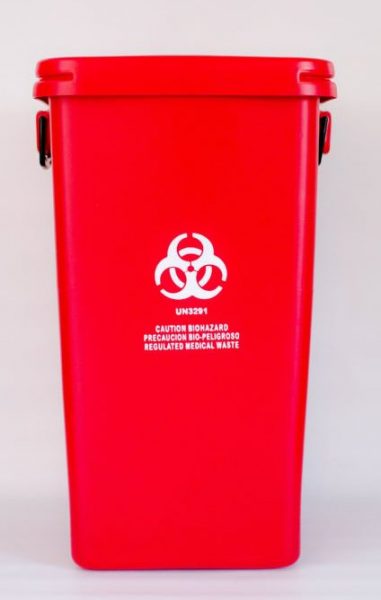Your Relied On Companion: Medical Waste Removal Services Tailored to Your Needs
Your Relied On Companion: Medical Waste Removal Services Tailored to Your Needs
Blog Article
Remain Ahead of Regulations: Professional Advice on Medical Waste Disposal
In a world where the medical care industry is constantly progressing, it is vital for clinical centers to stay ahead of guidelines when it involves the correct disposal of medical waste. With stringent guidelines and regular regulative changes, it can be challenging to browse the complexities of this process. With professional recommendations, centers can make certain conformity and minimize threats linked with incorrect waste disposal. From comprehending the different categories of clinical waste to applying the appropriate collection and partition techniques, this discussion will certainly give actionable tips and valuable understandings to assist facilities stay in advance of policies in the ever-changing landscape of medical garbage disposal.
Understanding Clinical Waste Categories
Recognizing medical waste groups is necessary for proper disposal and administration in healthcare facilities. Clinical waste refers to any kind of waste generated by health care activities that may pose a danger to public wellness or the environment. It is critical to categorize medical waste properly to guarantee its safe handling, therapy, transport, and disposal.
There are several classifications of clinical waste that medical care facilities need to be acquainted with. One of the most usual groups include infectious waste, pathological waste, sharps waste, pharmaceutical waste, and chemical waste. Each classification has certain standards and laws for its proper administration and disposal.
Contagious waste consists of products contaminated with blood or various other physical liquids, such as gloves, dress, and lab societies. Pathological waste describes human cells, body organs, or body components that need unique handling and disposal. Sharps waste consists of made use of needles, syringes, and various other sharp things that can create injury and transmit infections. Drug waste consists of run out, extra, or infected medicines that require mindful handling and disposal. Lastly, chemical waste consists of solvents, disinfectants, and other chemical substances used in healthcare facilities.
Remaining Up-To-Date With Regulatory Changes
Remaining existing with regulative modifications is crucial for health care centers to make sure compliance and correct management of clinical garbage disposal. medical waste removal service. With regulations constantly advancing, it is crucial for health care facilities to remain updated to avoid fines, fines, and potential injury to the atmosphere and public health
To remain in advance of governing adjustments, healthcare centers ought to develop a system for tracking and tracking updates. This can be done by registering for regulative e-newsletters, going to conferences and workshops, and actively joining industry organizations. Additionally, centers should assign an employee or team in charge of staying educated and disseminating details to relevant stakeholders.
Routine interaction with regulatory firms is additionally important. Health care centers ought to develop relationships with regional, state, and government agencies to guarantee they know any type of modifications in laws that may affect their waste monitoring techniques. This can be done via normal conferences, participation in public comment periods, and aggressive engagement with regulatory companies.
Additionally, health care centers must consider partnering with waste administration companies that focus on medical waste disposal (medical waste disposal services with WasteX). These companies are commonly fluent in the latest policies and can supply advice and assistance to ensure compliance
Implementing Proper Collection and Segregation Techniques
To successfully handle clinical garbage disposal, health care centers need to establish appropriate collection and segregation approaches according to governing standards. Applying these approaches makes sure the secure handling and disposal of potentially dangerous products, secures the environment, and minimizes the risk of infections and injuries to medical care employees and the basic public.
Appropriate collection and segregation approaches entail using assigned containers and labeling systems. Medical care centers must offer clearly identified containers for different sorts of medical waste, such as sharps, infectious waste, pharmaceutical waste, and non-hazardous waste. These containers must be color-coded and plainly marked to prevent complication and advertise simple identification.
In addition, healthcare centers should train their personnel on the appropriate procedures for accumulating and segregating medical waste. This consists of informing them on the various kinds of waste, the appropriate containers to make use of, and the value of complying with regulations and standards. Regular training sessions and correspondence course need to be carried out to ensure that employee remain current on finest practices.
Moreover, healthcare centers should develop a system for regular collection and disposal of medical waste. This might involve partnering with accredited waste management companies that specialize in medical garbage disposal. These firms will ensure that the collected waste is transferred and taken care of in compliance with regulatory needs.
Picking the Right Disposal Methods

Incineration is just one of one of the most typical and effective approaches for throwing away specific kinds of clinical waste, such look at these guys as pathological waste and sharps. It entails the controlled burning of waste at high temperature levels, lowering it to ash. Nevertheless, incineration can release unsafe toxins right into the air and add to air contamination.

Chemical treatment involves the use of chemicals to sanitize and reduce the effects of the waste. Microwave treatment uses microwave energy to warm and decontaminate the waste.
Making Certain Compliance With Documentation and Training
After very carefully thinking about the ideal disposal approaches for clinical waste, medical care centers need to ensure conformity with laws and lessen ecological effect by implementing reliable documentation and training treatments. This action is important in maintaining a lasting and secure atmosphere for both health care workers and the basic public.

Health care workers who deal with medical waste ought to receive suitable training on waste segregation, handling, and disposal procedures. By providing comprehensive training, health care facilities can equip their staff to make informed choices and decrease the threat of incorrect waste disposal.
Final Thought
Finally, staying ahead of laws in clinical waste disposal is important for healthcare centers. medical waste removal near me. Recognizing the different groups of clinical waste, remaining upgraded with governing changes, implementing appropriate collection and segregation approaches, picking the proper disposal techniques, and ensuring conformity with documentation and training are all important actions. By complying with these guidelines, medical care organizations can effectively take care of and dispose of clinical waste in a risk-free and responsible fashion
From comprehending the various classifications of medical waste to executing the ideal collection and segregation methods, this conversation will offer actionable pointers and beneficial insights to help centers remain in advance of laws in the ever-changing landscape of clinical waste disposal. - medical waste disposal services with WasteX
The most typical classifications include contagious waste, pathological waste, sharps waste, pharmaceutical waste, and chemical waste. Healthcare centers must provide clearly identified containers for various kinds of clinical waste, such as sharps, infectious waste, pharmaceutical waste, and non-hazardous waste. Healthcare facilities ought to establish a detailed system to tape and track all facets of clinical waste disposal, consisting of kinds of waste produced, quantities, and disposal techniques have a peek at this site used. Healthcare workers who handle clinical waste needs to obtain ideal training on waste partition, managing, and disposal treatments.
Report this page